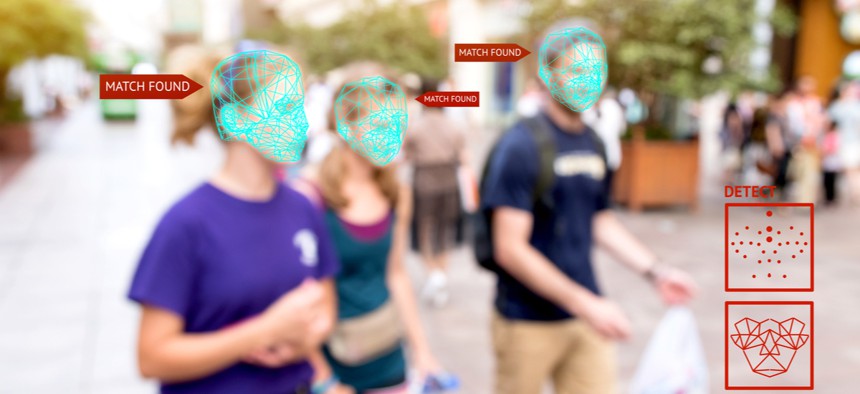When Regulating New Tech Harms Public Safety

Zapp2Photo/Shutterstock.com
Facial recognition technology is new and nascent, but not a departure from the innate abilities humans are born with. Efforts by states to limit its use harms public safety and deters innovation.
Humans innately use facial recognition from the moment we are born. Now our tech devices are mimicking our own facial recognition skills to provide tremendous new conveniences that streamline our lives. This emerging technology already helps us to unlock our phones and doors, bypass the need for passwords, and expedite security clearance at airports. More applications are just around the corner.
As with many other new technologies, facial recognition’s popularity has attracted the attention of privacy advocates, civil rights groups and government regulators. Illinois, for example, enacted a law that enables lawsuits against facial recognition services, which caused Nest and Shutterfly to no longer offer service to the state’s consumers.
And last year, a member of the New York City Council proposed rules that would have severely curtailed the use of facial recognition. It is apparent that just like Uber, YouTube, and short-term rentals, facial recognition is the latest in a series of innovations that have triggered a rush to regulate among policymakers despite public enthusiasm for new services and devices using the technology.
An Illinois court recently dismissed a lawsuit against facial recognition software, saying “no person can reasonably expect their face will be a mystery to the world.” The court could not see how facial recognition done by a machine rather than a person, was inherently harmful.
This rush to restrict facial recognition stalls the many benefits we stand to gain from the technology. Not only do we benefit from facial recognition as consumers, but also the impact on public safety can be tremendous. As criminals grow inevitably more sophisticated, we must help law enforcement to keep up.
While politicians have a growing appetite to regulate technology, does the general public share their hunger? A recent survey from the Center for Data Innovation reveals that the answer is overwhelmingly no. In fact, few Americans (25 percent) want government to play a heavy-handed role when it comes to facial recognition. And a majority (55 percent) supports the technology when considering the impact on public safety and security.
The survey found that three out of four Americans think government should avoid strict limits on the use of facial recognition. Women in particular are opposed, with only 14 percent supporting limits on facial recognition at the expense of public safety.
This survey makes clear that the public is warming to the idea that effective facial recognition is a valuable technology. While opponents of the technology point to potential violations of civil rights and personal privacy, at the end of the day, facial recognition is merely a lead-generation tool—helping law enforcement narrow-down the list of potential suspects the same way looking through a mug-shot book would. The challenge for us all will be ensuring that new laws and lawsuits do not get in the way of growing public comfort with the technology.
Our laws should foster and guide innovation, not inhibit it. Legislation must allow the public to enjoy the life-enhancing benefits that new technologies may offer, particularly when new technologies enhance the safety of our families and communities, and preserve our national security.
Carl Szabo is the vice president and general counsel at NetChoice and an adjunct professor of privacy law at the George Mason Antonin Scalia Law School.
NEXT STORY: Apple’s Empty Grandstanding About Privacy





